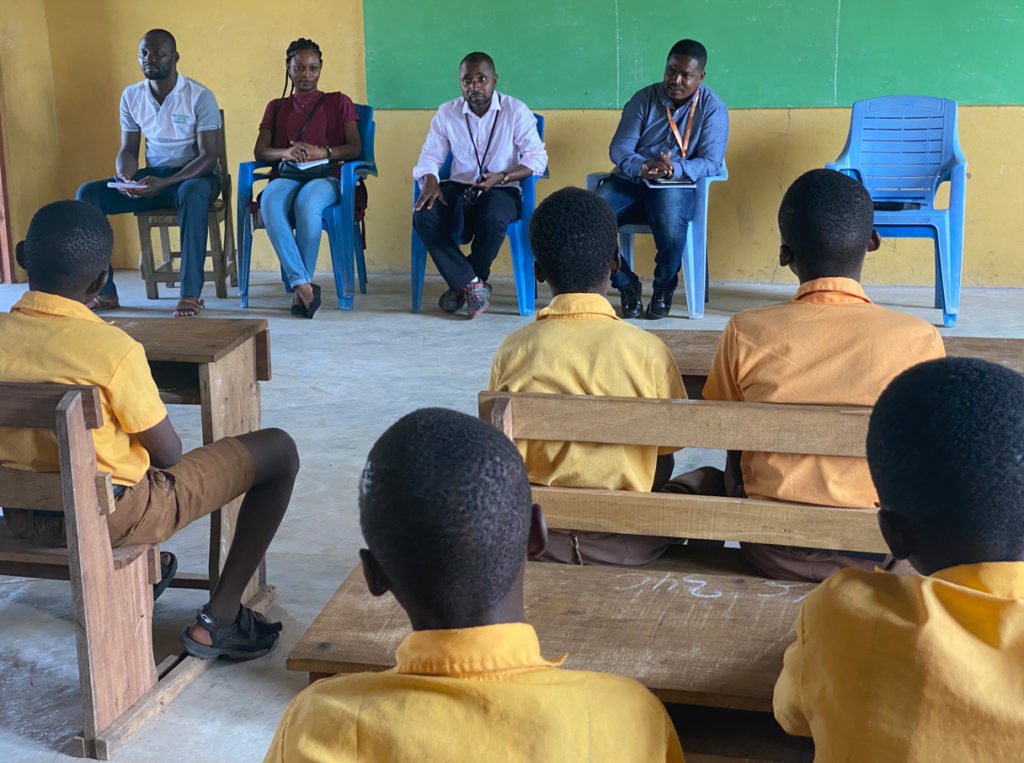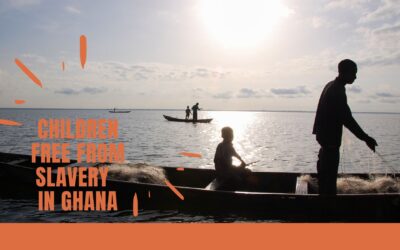The village school in Kobiri Nsuoano is a beacon of hope. It’s a simple building down a bumpy narrow road. But what happens inside is revolutionary. Children are learning about their rights as part of a Free the Slaves program to prevent them from being trafficked into fishing slavery.
Many children from impoverished families throughout this region are lured by traffickers who offer cash payments and a promise the children will learn valuable skills in the fishing industry. Instead, the children are overworked and underfed. Many are beaten. Their rights are ignored.
I was honored to visit the school’s Child Rights Club (CRC) meeting this summer. There was a clear blue sky and lush vegetation along the way. Amid the beautiful scenery, it was easy to forget that the Pru West District in Bono Region is a global hot spot for child slavery. As I pulled up to the school, two adults were leading a dozen children in a call-and-response chant of their club’s slogan.
Call: CRC, what do we do?
Response: We sensitize, we advocate, and we educate for a trafficking-free community!
It was uplifting and inspiring to see third, fourth and fifth graders so energized and optimistic about protecting themselves and safeguarding their entire village from traffickers. The school’s headmaster told me the club is one year old and meets twice monthly to educate children about their rights to education, shelter, good health – even the right to play. The club conducts outreach visits to churches and other schools to inform Ghanaians about child trafficking and the need to combat it.

The children were shy as we began our conversation. But as they became comfortable, they displayed impressive knowledge about why children need to be in school to learn, and how children get hurt and sick when they are overworked. They could also respond to questions about the responsibilities of their parents to provide food, clothing, shelter and school materials for them.
Free the Slaves and our Ghanaian partner organizations such as MIHOSO have launched Child Rights Clubs throughout the villages we work with as part of our strategy to change the conditions that allow modern slavery to persist. The program has both short-term and long-term benefits. Educating children to stand up for their rights, along with efforts to lift their families out of poverty, helps reduce the chances that they will be trafficked. And it helps instill a sense of child protection that can last generations as the club members become adults and have children of their own.
I could see that lasting change had already taken root as we wrapped up my brief visit to the school. The children told me they have dreams of becoming teachers, police officers and important personalities when they grow up. These are the future leaders of Ghana, and they deserve to grow up free!
Editor’s note: This is the first of four posts this month from FTS Executive Director Bukeni Waruzi about his visit this year to the front lines of modern slavery in Ghana. See all his Ghana posts and learn more about our Growing up Free program on our Ghana webpage.


